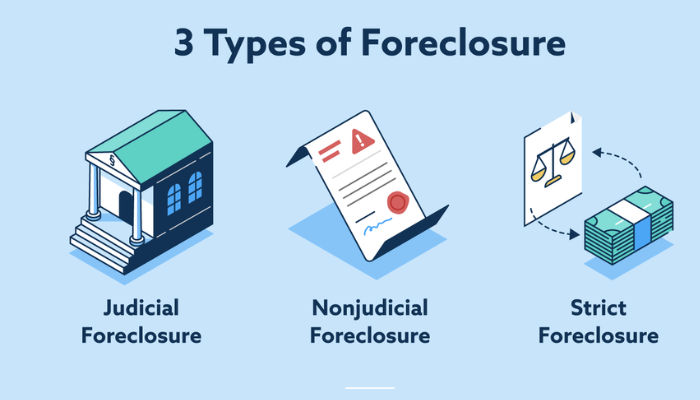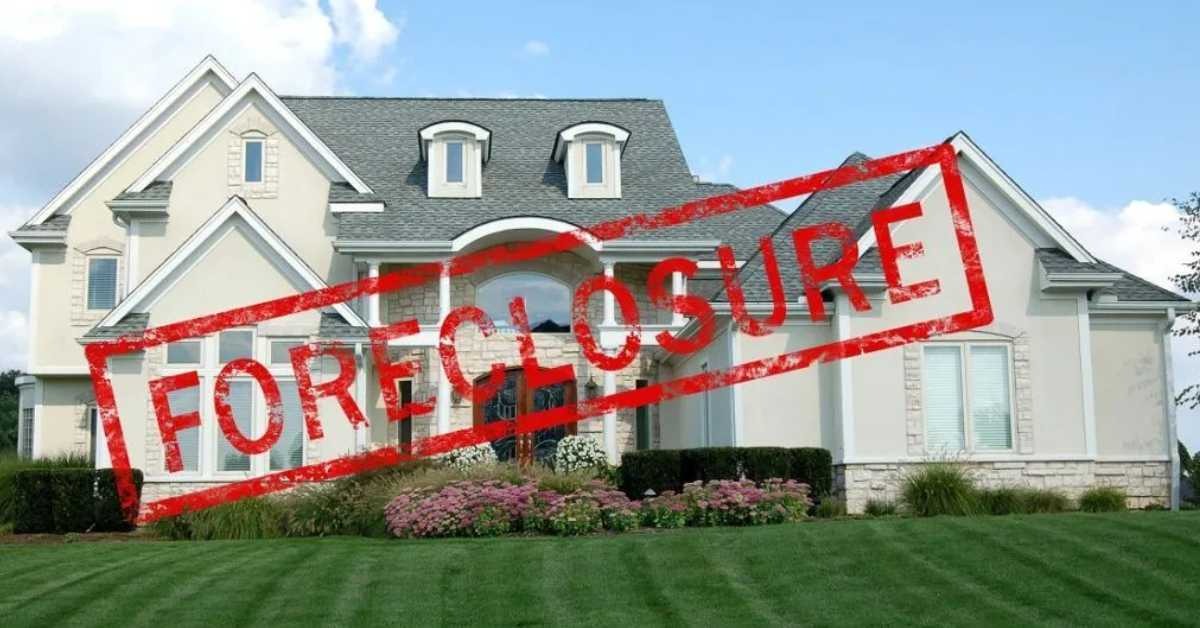The three types of foreclosure used in Canada: Judicial foreclosure, power of sale (nonjudicial), and strict foreclosure. Here’s what you should know about each.
What is Foreclosure?
When a borrower defaults on a mortgage, the mortgage lender seizes the property. This is known as a foreclosure. For the lender to be able to recoup as much of the outstanding loan amount as possible, virtually all mortgage loan arrangements give the lender the legal right to seize the property if the borrower defaults.
There are three different types of foreclosure that are used in different parts of the country, and the processes that apply to your situation depend on both state and local law and the terms of your mortgage loan contract.
The Three Types of Foreclosure
If you default on your house loan, the lender will handle default, eviction, and ultimately repossession of your property differently for each of the three forms of foreclosure. It is advisable to speak with a lawyer if you are facing foreclosure so they can advise you on your alternatives and the laws that apply in your area.

Judicial Foreclosure
When a borrower misses their third consecutive mortgage payment, the lender normally files a lawsuit with the court to start the foreclosure process (also known as going 90 days past due on their loan). If the borrower doesn’t bring the loan current within 30 days, foreclosure will start, according to a letter the borrower receives.
(In some jurisdictions, the time limit might be extended.) If a debt is not paid on time, the property is sold at a sheriff’s sale or court auction. Every state permits this kind of foreclosure, and some even require it.
Power of Sale (Nonjudicial) Foreclosure
This process, often referred to as statutory foreclosure, is allowed in areas where the mortgage contract is allowed to contain a power of sale language.
This contract provision permits a lender to arrange an auction to sell a foreclosed property without involving the legal system, provided that they provide the borrower with the relevant notifications and adhere to a necessary waiting period, the length of which varies by state and location. Power of sale foreclosures frequently go more quickly than legal proceedings, however in some cities the borrower has the right to file their own lawsuit with the relevant court to request judicial review of the procedure.
Strict Foreclosure
The so-called strict foreclosure, a unique form of judicial foreclosure, is only permitted in certain areas. The lender brings legal action against the defaulting borrower in this process. Title to the property goes to the lender directly without the need for a sale if the borrower does not pay the mortgage within a deadline set by the court. When there is more debt than the property is worth, strict foreclosures typically take place.
How to Avoid Foreclosure
Foreclosure can be a harrowing process, and one that has lasting consequences. The best way to survive foreclosure is to keep it from happening in the first place.
Here are some tips for steering clear of foreclosure:
- Before you skip a payment, get in touch with your lender. Before the payment is due, get in touch with your lender and explain the issue if you’re going to miss a mortgage payment. They might provide solutions that are beneficial. These include loan modifications that lengthen the term of your mortgage while lowering your monthly payments, as well as loan forbearance designed to assist you overcome momentary decreases in income. Your credit rating, how many loan payments you’ve already made, and whether or not you’ve ever missed or made late payments can all affect whether or not lenders are willing to make these accommodations.
- Don’t disregard messages from your lender. Your lender will make contact with you as soon as possible after you miss your first payment—and long before they may start the foreclosure process. If you’ve given them permission to send you electronic notices, they’ll usually phone you, write you a letter, and sometimes even email or text you. It’s crucial that you pay attention to these messages despite any embarrassment or fear you might be experiencing. The majority of lenders will cooperate with you to prevent foreclosure, but they can’t if you won’t communicate with them.
- Consult the housing department of the government. The Department of Housing and Urban Development in Canada provides a range of tools, including access to housing counselors who can assist you in creating an avoidance strategy.
How Does Foreclosure Affect Credit?
A foreclosure item normally appears on your credit reports a few months after a foreclosure judgment is finalized because lenders report foreclosures to the national credit agencies. After the initial missed payment that resulted in foreclosure, the foreclosure entry, which is regarded as a major adverse event in your credit history, remains on your credit reports for seven years.
The amount by which a foreclosure lowers your score will depend on how high it was before to the foreclosure as well as the number of other adverse items (such as late or missed payments) that are already on your credit report.
By the time a foreclosure appears on your credit report, those late payments may have decreased your scores so much that the foreclosure itself doesn’t bring a significant drop in credit score points. Foreclosure normally occurs only after you’ve missed at least three mortgage payments. The late payments that led to the foreclosure will also be on your credit reports for seven years, just like the foreclosure entry.
Before the foreclosure entry and late payments are deleted from your credit history, the effect foreclosure has on your scores will probably start to lessen, but it might still take a while for your ratings to recover. By checking your credit score for free, you can monitor your recovery.
The Bottom Line
The anxiety that comes with the possibility of foreclosure might be detrimental to your interests. It’s wise to make the effort to learn the procedures that apply where you reside if you’re facing foreclosure and to engage with legal professionals to seek your best options. You’ll eventually move past it, no matter what happens, but acting now can provide you more, better options than if you just wait for the process to finish.








